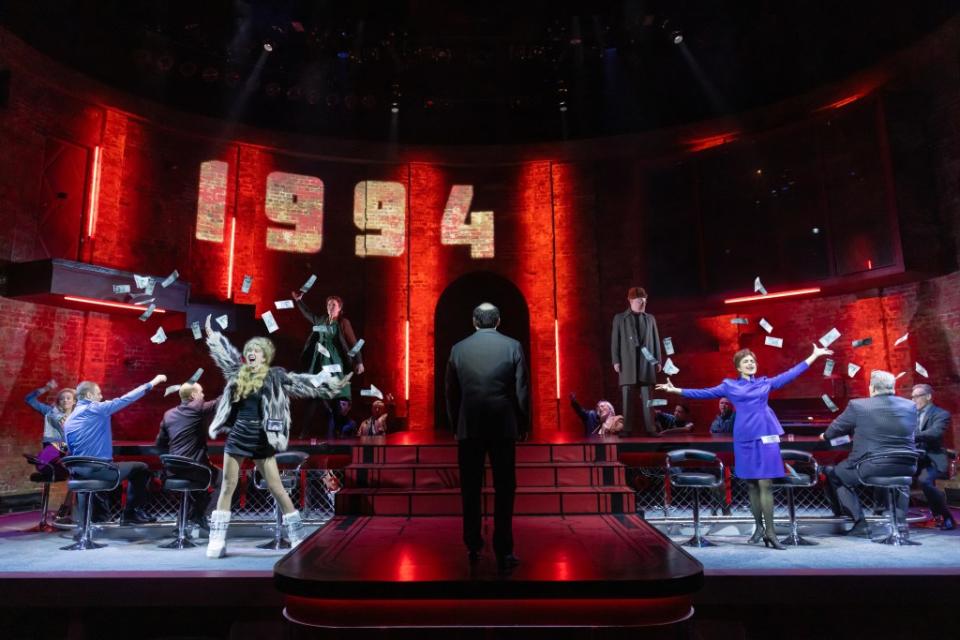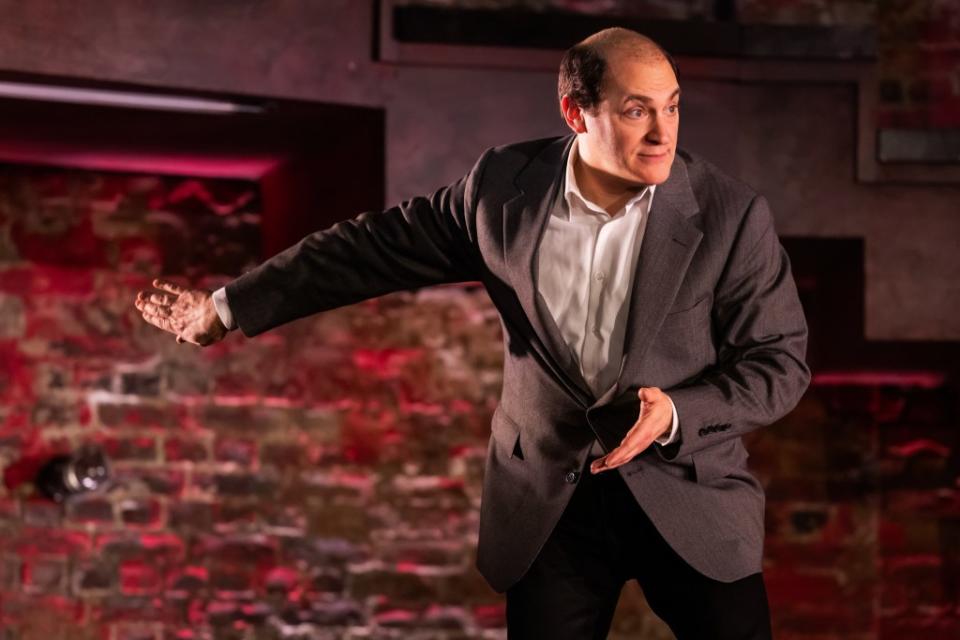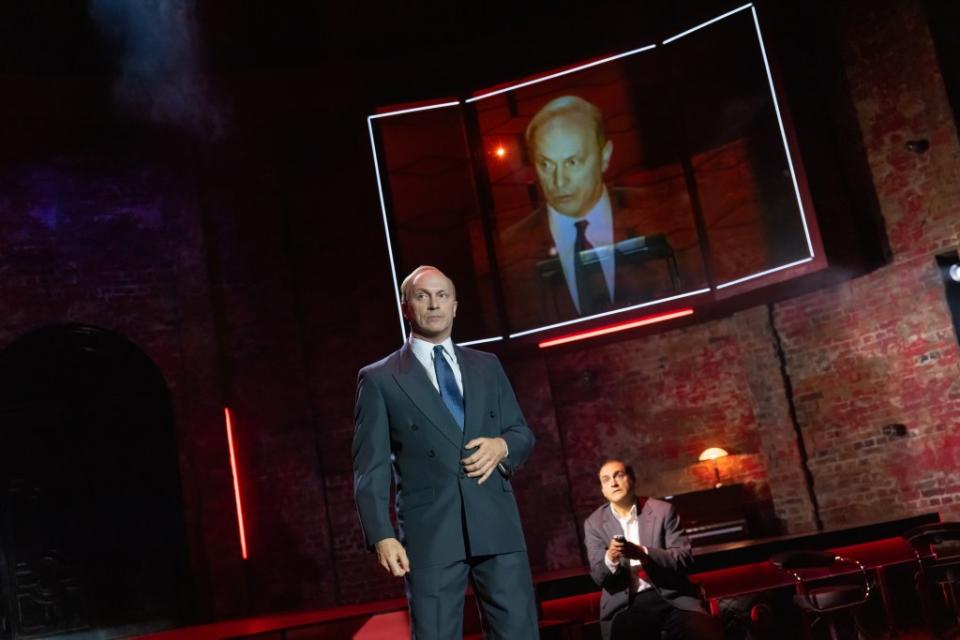‘Patriots’ review: ‘Crown’ creator’s Putin play is a bore on Broadway

- Oops!Something went wrong.Please try again later.
- Oops!Something went wrong.Please try again later.
Theater review
PATRIOTS
2 hours, 40 minutes, with one intermission. Barrymore Theatre, 243 W. 47th St. Through June 23
What a bore-scht.
Peter Morgan’s new play “Patriots,” about how Russian oligarchs catastrophically enabled the rise of Vladimir Putin, opened Monday at the Barrymore Theatre on Broadway.
It’s as slow and frigid as a cross-country skiing expedition through Siberia.
Leaning so hard on the relevance of its issues that it pulverizes any actual drama, the show from London is one of the season’s longest sits.
As Morgan proved on Netflix’s brilliant-turned-tacky “The Crown,” the royals series that he created for Netflix, his writing about historical figures has grown animatronic and hackneyed. Mouthpiece Theater. And so it is here.
Whereas the British playwright’s “Frost/Nixon” in 2006 was a juicy, intellectual and psychological boxing match, “Patriots” settles for being an impenetrable regurgitation of events propped up by director Rupert Goold’s worn-out bag of tricks.
The stage is a long bar, lit in Moscow red, with scattered Russians stoically drinking on stools throughout. The non-literal setting evokes, I dunno, too much Stolichnaya at 4 a.m.? Fine.

And down at this Slavic pub designed by Miriam Buether, when a talky scene flatlines, Goold has the cast dance to throbbing club music for some reason, just as he did in the newspaper play “Ink” and Shakespeare-style drama “King Charles III.”
The stabby-chic 2016 musical “American Psycho” he helmed on Broadway was 2½ hours of that. And eight years later, the DJ’s back for “Russian Fascist.”
The top-dog oligarch is Boris Berezovsky, a math-whiz-turned-billionaire who was one of Russia’s most powerful men during the 1990s after the fall of the Soviet Union.

Described as “theatrical,” he’s played by a saw-armed Michael Stuhlbarg as though we’re not at a show but a game of charades for the nearsighted.
The giant performance is, I suspect, a Hail Mary to pump some life into this tedium, made worse by several monotonous math lectures. And the actor’s intensity does come from a genuine place.
Highly influential and progressive Berezovsky secures Putin, the deputy mayor of St. Petersburg, the job of prime minister and then president after Boris Yeltsin (Paul Kynman, funny) steps down in 1999.
Back then, Putin was not yet the warmonger menace he’d soon turn out to be, but we see glimpses of the monster within.

Playing Vlad, Will Keen stares at himself in the mirror, broadening his shoulders and widening his stance. The macho posturing brings to mind the hilarious photos of the Russian leader riding horses shirtless.
But much like those snaps were obvious propaganda, Keen’s performance, most notable for his physical resemblance, has a similar fakeness. Putin is played, largely, for comedy — but jokes are met with silence and he’s never a truly frightening figure.
When the former KGB officer begins to shove aside his stated commitment to democracy in favor of old Soviet-style strongman tactics, Berezovsky goes from his protector to sworn enemy.
He winds up living in England and partaking in another battle — with fellow oligarch and former friend Roman Abramovich. As the former Chelsea Football Club owner, Luke Thallon is the opposite of Stuhlbarg and Keen — far too subdued.
Morgan’s play is clearly meant to ring the alarm for the West. But that’s fruitless if the audience presses the snooze button.

